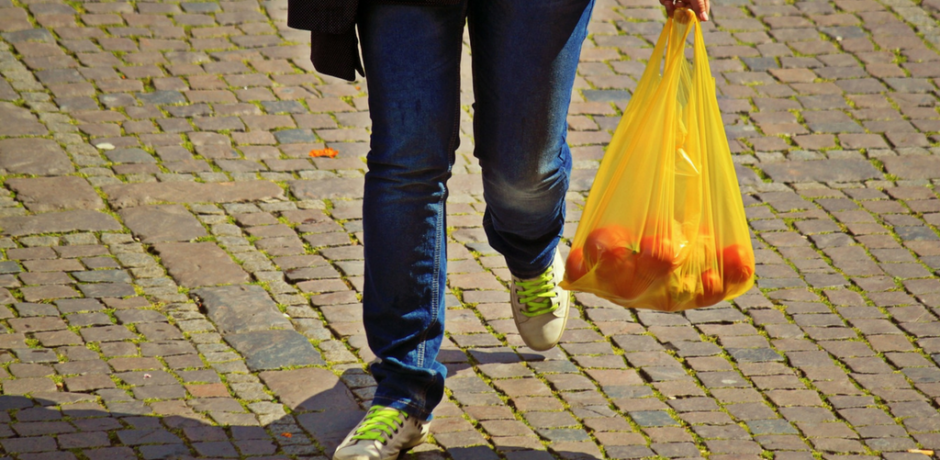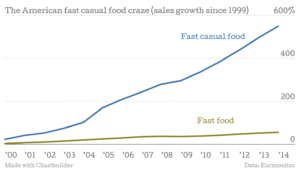Our Blog
In Michigan, a controversial bill banning local governments from regulating, taxing, and/or banning plastic bags and other single-use or reusable containers passed on Wednesday, December 28, 2016. The bill was signed by Lt. Governor Brian Calley while Governor Rick Snyder was out of state on vacation says MLive.
Senate Bill 853, championed by the Michigan Restaurant Association (MRA), has passed banning local Michigan governments from
“regulating the use, disposition, or sale of, prohibiting or restricting, or imposing any fee, charge, or tax on…auxiliary containers”, defined as “a bag, cup, bottle, or other packaging, whether reusable or single-use…designed for transporting, consuming, or protecting merchandise, food, or beverages from or at a food service or retail facility.”
In claiming a victory, the MRA press release quotes VP of Government Affairs for the MRA, Robert O’Meara as saying,
“With many of our members owning and operating locations across the state, preventing a patchwork approach of additional regulations is imperative to avoid added complexities as it related to day-to-day business operations.”
The below headline from an MLive.com Facebook Post places an emphasis on plastic bags but the totality of the new regulation is quite a bit more complex. While the bill does stop local governments from banning or taxing the use of plastic bags, it also stops them from doing the same to take-away cups from coffee shops, to-go containers from any restaurant, as well as any other reusable or single-use packaging that is made of “cloth, paper, plastic, cardboard, corrugated material, aluminum, glass, post-consumer recycled material, or similar material or substrates, including coated, laminated, or multi-layer substrates.”
Globally, over 20 countries have either charges, taxes, and/or bans on the use of disposable plastic bags, including the United States, where up to 20 states and 132 cities have bans in place or pending. Every year, Americans generate 258 million tons of trash and in 2014 they recycled and composted 89 million tons of Municipal Solid Waste (MSW).
What is the Next Move for the Hospitality Industry?
Restaurants contribute heavily to the usage of disposable and/or one-time-use products, particularly fast-casual establishments. A Washington Post article states,
“The market for fast-casual food…has grown by 550% since 1999…” and “Americans spent more than $21 billion at fast casual restaurants last year…”
While the definition of a fast-casual restaurant is somewhat of a gray area, restaurant chains Chipotle and Panera are widely-used examples of this growing market segment. The same Washington Post article states,
“Fast casual restaurants also, ideally, earn less than 50% of their business from full service sit down meals. Otherwise, they too closely resemble casual dining restaurants, like Applebee’s.”
Using this as a guide, a minimum of 50% of customers at a fast-casual restaurant are likely using a range of single-use/disposable products to consume their food, including cups, cutlery, plates, containers, etc.
Panera has taken steps to be more environmentally friendly, writing in their 2014 Responsibility Report, “…one priority in 2014 was to explore how to integrate polypropylene cutlery, which can be recycled, into our bakery-cafes and catering centers.” As of December 30, 2014, Panera packaging used approximately 40 tons of paperboard and plastic material. Of that material:
- 84 percent is recyclable
- 76 percent used a renewable resource
- 32 percent is recycled material
- 76 percent of the paperboard is from certified sustainable forests.
“In the future, we hope to conduct a packaging assessment to spot more opportunities for increasing the use of recycled materials and reducing the overall environmental footprint of our packaging.”
How Does This Impact Michigan Specifically?
Companies like Bay Area Recycling for Charities (BARC), a non-profit company based in Northern Michigan, provides commercial and residential recycling services, mattress and refrigerator recycling, and compost material for landscaping. They also supply compostable products including plates, bowls, cutlery, cups, napkins, and takeaway boxes to ~150 businesses, restaurants, and events throughout Northern Michigan.
Andy Gale, Founder of BARC, says
“I see this bill as a positive rather than a negative. It will create more awareness about the substitutes to plastics and styrofoam that are better for the environment…Michigan recycling rates are some of the lowest in the country and I’m glad to see that these types of bans are being discussed at a state level.”
According to Gale, the paper products that BARC provides are compostable and made from bagasse – an environmentally friendly wheat or sugarcane fiber. The plasticware which is called PLA, short for polylactide, is made from plant starches and plant oils. These products break down in 180 days and are converted back into the soil within a year. Petroleum based plastics will last in a landfill or compost for approximately 1,000 years.
Gale mentions that the inevitable increase in oil prices will affect the costs of traditional plastic wear, which is largely made from petroleum. As prices rise, people and businesses will be forced to seek alternatives.
“The more people buy products made with post-consumer materials, they’re using their dollars to support businesses like BARC and others that provide these products, which increases demand, helps the market grow, and make the costs lower than petroleum-based products. Eventually, large companies like Gordon Food Service [a national food service supplier] will be forced to move away from petroleum-based products as sustainable, compostable products become more cost-effective,” says Gale.
BARC works with another Michigan-based company, Green Safe Products, who supplies them with their compostable products. Green Safe has partnered with Ford Field (home of the Detroit Lions), The Palace of Auburn Hills (home of the Detroit Pistons), and the University of Michigan to make the switch to compostable-only products in their facilities, who together host millions of visitors each year.
Final thoughts…
The inclusively of the bill allows for future deliberation on how to effectively manage the use of plastic bags and other single-use or reusable containers at a state level. It appears that the ban was not to limit bans indefinitely but to combat issues that could arise from variances in locally implemented regulations for businesses operating across the state.
While the bill does place restrictions on local governments, if organized correctly, new comprehensive state-wide use policies and regulations can and must be designed to protect and preserve our environment and to have minimal impact on businesses responsible for following them.
Following the trend from other countries and states, single-use plastic bags will likely fall into a category of their own and have specific laws, taxes, and/or regulations passed in their regard. As for the remaining products included in Senate Bill 853, the future is unclear.
I believe consumer demand for sustainability will drive companies to focus on their overall environmental impact and seek out services to help them minimize their footprint. I’ve reached out to the MRA for their thoughts on how they see this bill impacting the future of the industry and will update this article if and when I receive a reply.
Contacts:
Andy Gale
Founder, Bay Area Recycling for Charities (BARC)
andy@mybarc.org
Robert O’Meara
VP of Government Affairs, Michigan Restaurant Association
romeara@mramail.org
Read the final Senate Bill 853.



